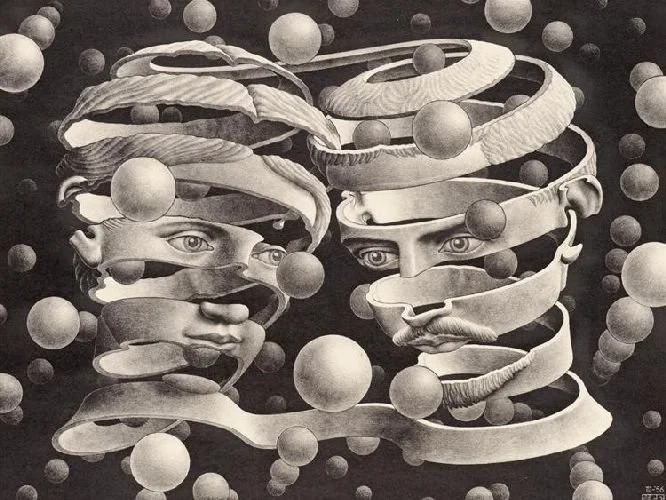Learn with me.

When We Are Undone: Exploring Moments of Vulnerability Within the Analyst
It all begins with an idea.


Between Divine Authority and Emerging Selfhood: A Clinical Training on Evangelical Trauma
A brilliant young student sits frozen before a blank page. Their mind soars through theological paradoxes with ease, yet their thoughts refuse the permanence of paper—blooming like psychic skywriting only to vanish rather than risk choosing between their own voice and the voices that shaped them.
This clinical case, viewed through Dr. Jason Jost's framework of evangelical trauma, reveals a hidden therapeutic challenge. Children raised under the unblinking gaze of absolute truth learn to hide their authentic selves, even from themselves. Like this student whose ideas appear and dissolve rather than demand permanence, they develop sophisticated defenses against the dangerous act of self-assertion.
The case illuminates how psychoanalysts unfamiliar with evangelical child-rearing may unknowingly replicate these accommodation patterns—becoming another transcendent authority the patient must please. Drawing from Jost's insights and Peter Shabad's work on human agency, this training explores how therapeutic dynamics can mirror the original family system where emerging selfhood was consistently subordinated to divine will.
Participants will learn to recognize these patterns and develop approaches that create space where the sacred and personal need not exist in opposition—helping patients like this student finally allow their beautiful thoughts to remain on the page.

When Worlds Collide: Integrating Body-Based and Relational Depth in Therapy
"Worlds are colliding!"
George Costanza's panic echoed through that iconic Seinfeld episode—his carefully compartmentalized life threatening to implode. Keep Relationship George separate from Independent George. Never let the worlds touch. Sound familiar?
How often we therapists do the same; keeping body-based, bottom-up approaches in one corner and relational psychoanalytic work in another. But what if, unlike George, we embraced the collision?
Join Jessica Richards, MS, LCSW, and Michelle Harwell, LMFT, PsyD, as they demonstrate why these seemingly disparate approaches should not just coexist—they need each other. Framed by a case presentation, Richards will respond through the lens of the NeuroRelational Framework (NRF), and Harwell through a relational psychoanalytic approach. We will see how the NRF accesses the nervous system's wisdom through sensation, movement, and implicit memory while the psychoanalytic illuminate meaning-making, attachment patterns, and the co-created therapeutic relationship. Both will reveal how a dysregulated nervous system can't access insight, and how insight without embodiment remains an abstract concept.
Watch as Richards tracks the nervous system's underground rivers while Harwell illuminates the relational currents flowing between therapist and client. A body that feels safe enough to settle can finally access the insights waiting beneath, and psychoanalytic depth without somatic grounding leaves clients stranded in their heads. Together, we will see how these approaches don’t just complement the other, they complete each other.
Rather than keeping these worlds apart, Richards and Harwell will show how integration results in a more powerful and holistic therapeutic approach, enriching your practice and the healing of your patients and clients.

Witnessing the Gap: Clinical Presence in the Face of Therapeutic Rupture
Dr. Simone Drichel's reimagining of gaps as ethically necessary spaces that preserve otherness offers profound implications for clinical practice. This panel explores how "proximity with infinite separation" translates into the consulting room during therapeutic impasses. Drawing from clinical vignettes, we will examine how the impulse to "repair" gaps may inadvertently collapse patients' alterity. When clinicians rush to bridge understanding, they risk abandoning patients to face their essential aloneness without witness. We will explore different ways to "endure the ethical gap": how therapeutic presence differs from understanding; how therapeutic failures may preserve otherness rather than represent mistakes; and how remaining vulnerably present within gaps creates authentic encounter. Through case material, this panel demonstrates the shift from empathy as bridge-building to empathy as witnessing— staying present with patients' irreducible difference while resisting premature understanding. Following all three clinical presentations, Dr. Drichel will join for roundtable discussion integrating clinical perspectives with her theoretical framework.
Let’s work together